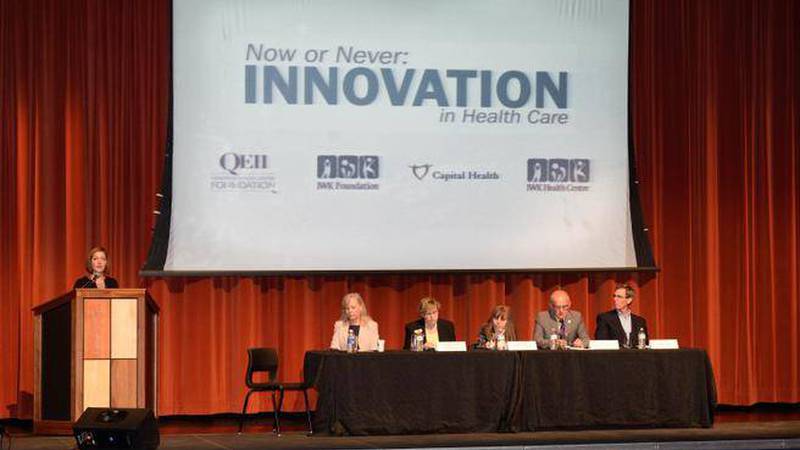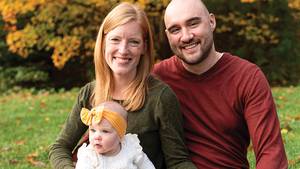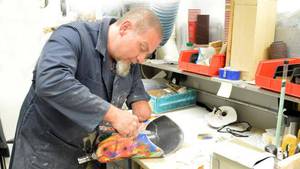More than 600 people filled Citadel High School’s Spatz Theatre on September 30, 2014 to participate in the first of a series of free public forums to discuss improving Canada’s healthcare system.
Sponsored in part by the QEII Foundation, the
The first keynote speaker was Dr. Danielle Martin, an Ontario physician known for defending Canada’s healthcare system at a U.S. subcommittee hearing last March.
The advocate for Canada’s publicly funded healthcare system delivered her talk, “Transforming Health Care: Three Big Ideas” to an appreciative and engaged audience.
“We can’t build our system on ideas that sound good or seem to make sense, we have to actually be willing to examine all of the available data, here and internationally, so that we can separate fact from fiction and failure from success,” Dr. Martin said in her opening statement.
Dr. Martin broke down three ideas that would help address the challenges of cost, quality and access. She did this by weaving in stories of real Canadian patients who would be positively impacted by each of those ideas.
“They are not my ideas, I want to be clear, but they are well formulated, they are based on good evidence and in my view they meet the key tests for delivering on the promise of Medicare,” she said.
The first idea, ‘20 drugs to save a nation,’ revolves around a national drug program that would fund 20 prescription drugs currently unavailable via Medicare. The 20 drugs selected would be ones that are used to control common chronic disease like asthma, diabetes and high blood pressure.
The second idea she proposed is called ‘doing more with less.’
“Doing more with less is about improving access to health care for Canadians who need it by reorganizing the way that services are delivered to people,” she said.
“We need to start taking the resources that are available to us and using them more intelligently.”
Dr. Martin pointed to applied queuing theory as one innovation that’s not high tech or sophisticated but has proven successful in reducing wait times.
The third big idea, ‘basic income,’ would bring all Canadians up to a decent standard of living using the tax system.
“The evidence is clear. Income is the strongest predictor of health so addressing poverty is one of the most important things we can do to address it,” she said.
If you fall below a certain level after filing your taxes, you could get topped up to a level sufficient to meet basic needs. Dr. Martin said this would be an alternative to costly social assistance programs and would virtually eliminate poverty in Canada.
“If we start to do these three things we will see substantial improvements in the health of Canadians,” she said in conclusion. “We need to take actions that are worthy of Medicare. Let’s go get started. We have a promise to keep.”
Her speech was followed by a panel discussion and many questions from the audience. Panelists included, Dr. Kathleen MacMillan, director, school of nursing, Dalhousie University, Laura Fraser, staff reporter, The Chronicle Herald, Dr. John Sullivan, QEII cardiovascular surgeon, president, Doctors Nova Scotia, Gerry Post, patient and community activist, and Pauline Dakin, CBC’s national health/medical reporter, moderated the event.
“Having a speaker with the ideas, experience and profile of Dr. Martin to begin our series is very exciting,” said Dr. Patrick McGrath, vice-president of research, innovation and knowledge translation at the IWK Health Centre and Capital Health. “Her transformative ideas will set the tone for future events as we engage in a dialogue about health care with Nova Scotians.”
Plans for the second Innovation in Health Care forum are underway now.








